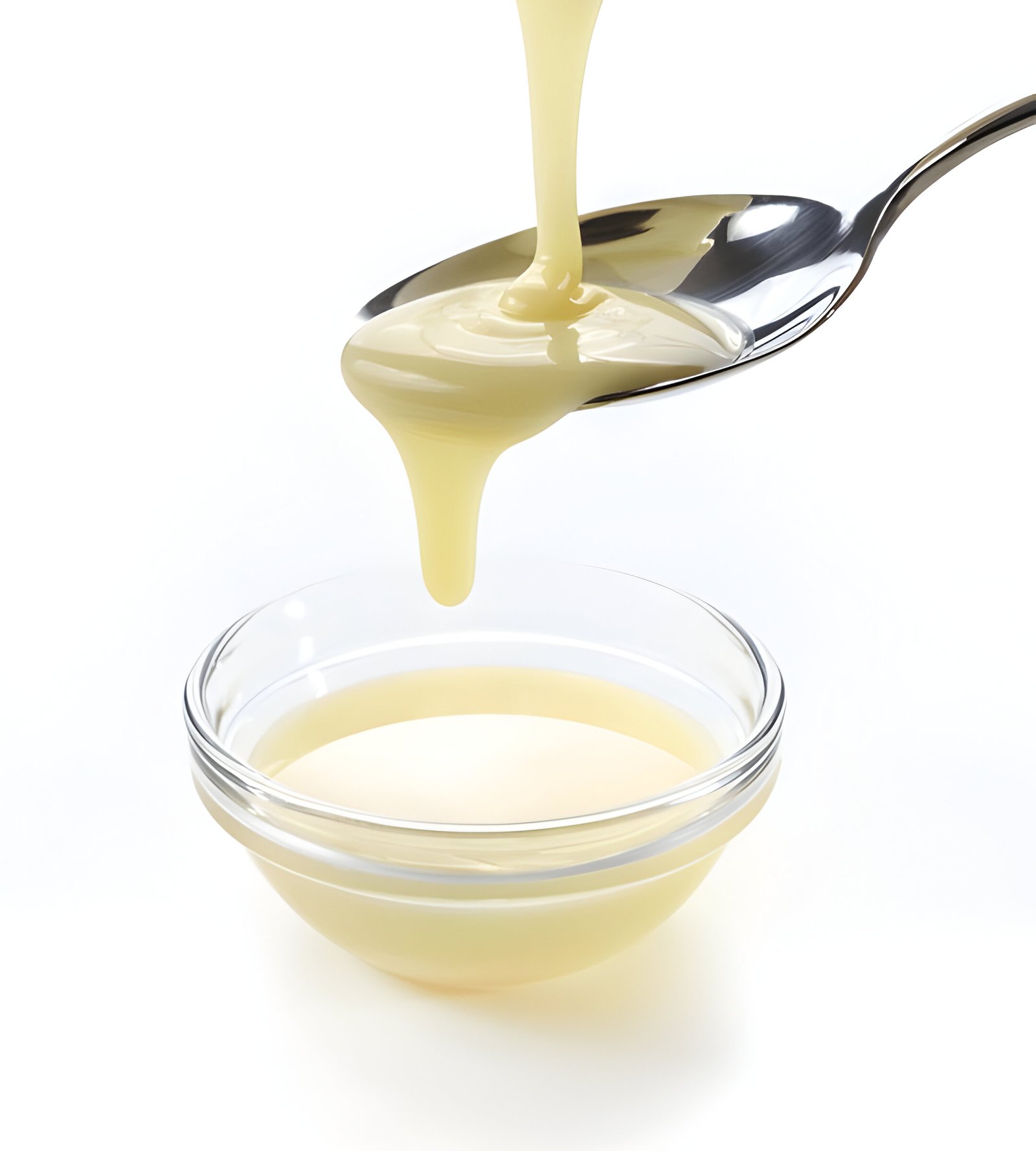Image Credit : Shutterstock
For those managing diabetes, finding the right coffee creamer can be a challenge. Coffee creamers for diabetics offer a way to enjoy a rich, creamy cup of joe without causing spikes in blood glucose levels. These specialized products cater to individuals who need to keep a close eye on their sugar intake while still savoring their morning brew.
When selecting a coffee creamer, should pay attention to nutrition labels and ingredients. Many options use alternative sweeteners like stevia or erythritol instead of sugar. Some creamers, such as those made from oat milk or containing added protein, may have a positive effect on insulin sensitivity. From traditional half and half to innovative plant-based alternatives, there are numerous safe and delicious options available to enhance the coffee experience for those with diabetes.
Understanding Diabetes-Friendly Coffee Creamers
For individuals with diabetes, selecting the right coffee creamer is crucial for maintaining stable blood glucose levels while still enjoying a flavorful cup of coffee. Diabetes-friendly coffee creamers offer a way to enhance the taste of coffee without causing significant spikes in blood sugar. Understanding what to look for in these creamers and how different ingredients affect blood glucose levels can help diabetics make informed choices.
What to Look for in a Diabetic-Friendly Creamer
When choosing a coffee creamer suitable for diabetics, several factors should be considered:
- Sugar Content: The primary concern is the amount of sugar in the creamer. Opting for creamers with little to no added sugar is critical to minimize the impact on blood sugar levels.
- Carbohydrate Content: Pay close attention to the total carbohydrates listed on the nutrition label. Aim for creamers with 5 grams or less of carbohydrates per serving.
- Healthy Fats: Look for creamers that contain healthy fats, which can help slow down the absorption of caffeine and minimize its impact on blood sugar levels.
- Protein Content: Creamers with added protein can have a positive effect on blood sugar control.
- Natural Ingredients: Choose creamers with wholesome, recognizable ingredients and avoid those with artificial additives.
- Serving Size: Be mindful of the serving size listed on the label, as it’s easy to use more than the recommended amount.
The Role of Sugar, Carbs, and Artificial Sweeteners
Understanding how different sweeteners and carbohydrates affect blood glucose levels is essential for managing diabetes:
- Added Sugars: Men should limit their daily added sugar intake to 36 grams, while women should aim for 25 grams or less. It’s important not to consume all daily sugar allowance from coffee creamers alone.
- Carbohydrates: Carbohydrates have the most significant impact on blood sugar levels. Choosing creamers with lower carb content can help maintain better glucose control.
- Artificial Sweeteners: Many diabetes-friendly creamers use sugar substitutes or natural sweeteners like stevia or monk fruit extract. These alternatives provide sweetness without significantly affecting blood sugar levels. However, some individuals may be more sensitive to certain sugar substitutes, so it’s essential to monitor individual responses.
- Sugar Alcohols: Some creamers contain sugar alcohols like sorbitol, maltitol, or erythritol. While these have a minimal impact on blood sugar, they may cause digestive issues in some people if consumed in large amounts.
Benefits of Low-Carb and Sugar-Free Options
Opting for low-carb and sugar-free coffee creamers can offer several advantages for individuals with diabetes:
- Better Blood Sugar Control: These options have a minimal impact on blood glucose levels, allowing for more stable readings throughout the day.
- Weight Management: Low-carb and sugar-free creamers are often lower in calories, which can aid in weight management – a crucial factor in diabetes control.
- Improved Insulin Sensitivity: By reducing the overall carbohydrate and sugar intake, these creamers may help improve insulin sensitivity over time.
- Flexibility in Diet: Using low-carb or sugar-free creamers allows individuals with diabetes to enjoy their coffee while saving their carbohydrate allowance for other foods throughout the day.
- Variety of Options: There are numerous low-carb and sugar-free creamers available, including plant-based alternatives like almond milk or coconut milk creamers, providing a range of flavors and textures to suit different preferences.
It’s important to note that while coffee creamers can be part of a diabetic-friendly diet, they should be used in moderation. Always consult with a healthcare provider or registered dietitian to determine the best choices for individual needs and to ensure that the selected creamers align with overall diabetes management goals. By making informed decisions about coffee creamers, individuals with diabetes can enjoy their daily cup of coffee without compromising their health or blood sugar control.
Top 5 Coffee Creamers for Diabetics
For individuals managing diabetes, selecting the right coffee creamer is crucial to maintain stable blood sugar levels while still enjoying a flavorful cup of coffee. Here are five excellent options that cater to the needs of diabetics:
Also Read : Are Skinwalkers Real? Exploring the Legends and Facts
Unsweetened Dairy Options
One of the best choices for diabetics is plain, unsweetened dairy creamer. Organic Valley Grassmilk Organic Half and Half stands out as an excellent option. It contains nothing but organic milk and cream from grass-fed cows, with no added sugar, flavors, thickeners, or emulsifiers. This creamer has a rich, creamy texture and provides less than 1 gram of carbohydrates per tablespoon. Additionally, grass-fed milk contains more omega-3 fatty acids than conventional milk, making it a healthier choice overall.
Plant-Based Alternatives
For those who prefer dairy-free options, plant-based creamers can be an excellent choice. Nutpods Almond + Coconut Creamer is a top recommendation for diabetics. With no added sugar and a wide variety of flavors, it checks all the boxes for a diabetes-friendly creamer. The main ingredients are water, coconut cream, and almonds, providing a creamy texture without the need for added sugars or artificial sweeteners. Nutpods offers flavored varieties such as Caramel, French Vanilla, and Cinnamon Swirl, all without any sweeteners whatsoever.
Sugar-Free Flavored Creamers
For those who enjoy flavored creamers but need to avoid sugar, there are several excellent sugar-free options available. Starbucks Zero Creamer in Caramel Macchiato flavor has gained popularity among diabetics. While not entirely sugar-free, it contains less than 1 gram of sugar per serving, making it a suitable choice for those watching their blood sugar levels. This creamer offers a rich, indulgent flavor reminiscent of the popular Starbucks beverage, without the high sugar content.
Protein-Enriched Creamers
Protein-enriched creamers can be beneficial for diabetics as they help stabilize blood sugar levels. While not marketed specifically as a creamer, Premier Protein shakes can serve as an excellent low-carb, high-protein addition to coffee. With only 3 to 5 grams of carbs for an entire 11.5 oz bottle, these shakes come in several flavors and are easy to mix into hot or iced coffee. They’re sweetened with sucralose, which doesn’t impact blood sugar levels significantly. Per tablespoon serving, Premier Protein shakes contain approximately 0.22 grams of carbs, 7 calories, and 0 grams of sugar.
Homemade Diabetic-Friendly Creamer Recipes
Creating homemade coffee creamers allows diabetics to have full control over the ingredients and sugar content. A simple and nutritious recipe involves blending ¼ cup hemp seeds, ¼ cup milk (dairy or plant-based), a splash of vanilla extract, and some cinnamon in a blender. This mixture makes four servings and can be stored in the refrigerator for up to five days. Hemp seeds are rich in healthful fats, including plant-based omega-3 ALA, and the recipe contains no added sugar or saturated fat.
When selecting or making coffee creamers, diabetics should prioritize options with little to no added sugar, low carbohydrate content (2 grams or less per tablespoon), and minimal saturated fat. It’s also advisable to avoid artificial sweeteners and thickening agents like carrageenan, which may have negative health effects. Always monitor blood sugar levels closely when trying new creamers, and consult with a healthcare provider or registered dietitian to ensure the chosen options align with individual diabetes management goals.
How to Incorporate Coffee Creamers into a Diabetic Diet
Incorporating coffee creamers into a diabetic diet requires careful consideration and monitoring. While individuals with diabetes can enjoy coffee with creamer, they need to be mindful of their choices and portion sizes to maintain stable blood glucose levels.
Portion Control and Serving Sizes
For those managing diabetes, portion control is crucial when using coffee creamers. The American Diabetes Association reports that a two-tablespoon serving of liquid coffee creamer typically contains 11 grams of carbohydrates, with 10 grams being sugar. This amount can significantly impact blood sugar levels, especially when consumed regularly.
To manage creamer intake effectively:
- Measure creamer portions accurately using a tablespoon or a measuring cup.
- Be aware that the standard serving size for most creamers is just one tablespoon.
- Account for the carbohydrates in coffee creamer when calculating daily carbohydrate intake.
- Consider using creamers with 3 grams of carbs or less per serving to minimize blood sugar impact.
It’s important to note that many people use more than the recommended serving size, which can lead to unintended carbohydrate consumption. Using a premade protein shake as a creamer alternative allows for more liquid without increasing carbs and calories.
Pairing Creamers with Diabetes-Friendly Coffee Drinks
When selecting coffee creamers, individuals with diabetes should prioritize options that complement their overall diet plan. Here are some tips for creating diabetes-friendly coffee drinks:
- Choose creamers with less than 3 grams of added sugar per serving.
- Opt for creamers that provide fat, fiber, and/or protein, as these nutrients can help slow down the absorption of sugar.
- Consider using heavy whipping cream, which raises blood glucose levels more slowly and has a prolonged effect.
- Avoid low-fat creamers that use corn syrup as a thickener, as these can cause prolonged blood sugar spikes.
- Experiment with sugar-free sweeteners and low-carb creamer options to find a balance that works for individual taste preferences and blood sugar management.
For those who enjoy flavored creamers, sugar-free options like Starbucks Zero Creamer in Caramel Macchiato flavor can be a suitable choice, containing less than 1 gram of sugar per serving.
Monitoring Blood Sugar Response
Regularly monitoring blood sugar levels is essential for individuals with diabetes who consume coffee with creamer. This helps in understanding how different creamers and portion sizes affect glucose levels. Here are some guidelines for monitoring blood sugar response:
- Check blood sugar levels before and 2 hours after consuming coffee with creamer.
- For people with diabetes, blood sugar should ideally be less than 180 mg/dL 2 hours after drinking coffee.
- For those without diabetes, blood sugar should be less than 140 mg/dL 2 hours after consumption.
- Be aware that caffeine in coffee can raise blood sugar levels for some individuals, independent of creamer use.
- Keep a log of different creamers and their effects on blood sugar to identify the best options for individual needs.
It’s important to remember that coffee with creamer is not a ‘free’ food and can raise glucose levels. However, adding a creamer with some fat or protein to morning coffee may be better for blood sugar control than drinking coffee alone.
By carefully selecting creamers, controlling portions, and monitoring blood sugar responses, individuals with diabetes can enjoy their coffee while maintaining stable glucose levels. It’s always advisable to consult with a healthcare provider or registered dietitian to determine the best approach for incorporating coffee creamers into a personalized diabetes management plan.
Conclusion
Choosing the right coffee creamer can make a big difference for people with diabetes who want to enjoy their morning brew without messing up their blood sugar. This article has shed light on various options, from dairy-free alternatives to protein-enriched choices, that can help diabetics savor their coffee while keeping their health in check. By paying attention to ingredients, portion sizes, and individual responses, it’s possible to find a creamer that fits well into a diabetes management plan.
In the end, the key is to strike a balance between taste and health. Regularly checking blood sugar levels and working with healthcare providers can help fine-tune creamer choices to individual needs. With the wide range of diabetes-friendly creamers available today, along with the option to make homemade versions, there’s no need for those managing diabetes to give up their cherished coffee routines. It’s all about making smart choices and enjoying coffee in a way that supports overall health and well-being.
FAQs
What are the best creamer options for diabetics to add to their coffee?
For individuals with diabetes, ideal include half & half, whole milk, alternative milks such as almond or soy, and unsweetened coffee creamers.
Is it safe for diabetics to use creamer in their coffee?
While it’s safe for diabetics to use important to be cautious as coffee with sugar or creamer can elevate blood sugar levels. The healthiest way for diabetics to enjoy coffee is either black or with a natural alternative sweetener.
What are suitable additions for diabetics to put in their coffee?
Diabetics should start with black (unsweetened) coffee and, if needed, add a small amount of a sweetener that has a low glycemic index or a bit of regular sugar.
Which type of coffee is less likely to spike blood sugar levels?
Decaffeinated coffee is a better option for those concerned about blood sugar spikes. Unlike regular coffee, the minimal caffeine content in decaf does not significantly affect blood sugar or insulin levels.




